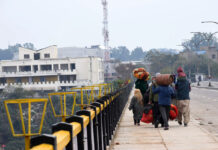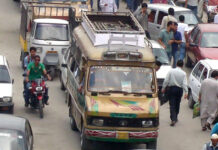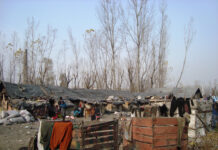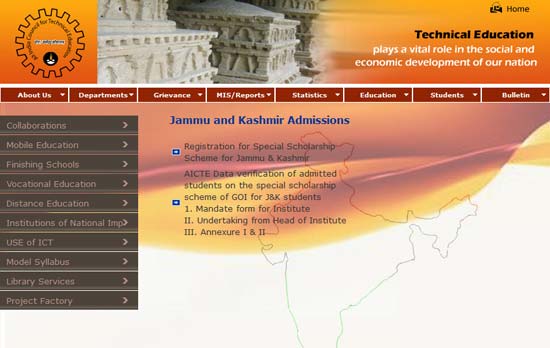The disappearance of mutton from markets has forced Kashmiris go without their favourite food for weeks. Abdul Mohamin reports.
A rate row prompted by the increase in the taxes on import of sheep and goats by the state government has resulted in the vanishing of mutton from the markets in Kashmir.
Kashmir has the highest per capita mutton consumption in India. The high demand has led to inflated rates, much higher than the rates fixed by the Consumer Affairs and Public Distribution (CAPD) department.
“The huge demand of mutton in Kashmir gives butchers a leverage to have a free hand to decide the rates. They never following the prices set by the government,” says Gowhar Ahmad Shagoo, a resident of Rainawari, Srinagar.
Kashmiris have more liking for mutton sourced from sheep, unlike in Indian plains were goat meat is preferred. The availability of mutton in Kashmir markets reduces drastically whenever butchers and wholesalers want to raise its prices.
Dr Mohammed Ashraf Paul, Associate Director Research (Animal Sciences) Faculty of Veterinary Sciences, Sher-e-Kashmir University of Agricultural Science and Technology, blames the huge mutton demand for the high retail rates.
“It is this liking (for mutton) that is resulting in exploiting of consumers. We always pay more for mutton, though better sources of protein are available in the shape of meat sourced from other animals, which we shy away from even tasting,” said Paul.
He urged a change in people’s preference to stop consumer abuse both in prices and quality of mutton. “This will also help in limiting our reliance on (mutton/sheep) imports.”
 There is no set procedure, or facility, veterinary experts say, to check the quality of mutton available in the market.
There is no set procedure, or facility, veterinary experts say, to check the quality of mutton available in the market.
“The government agencies are ill-equipped to check quality of mutton sold in the markets and only ineffectively try to control prices,” they said.
Mutton disappeared from the markets after the administration issued an order setting the retail price of wholesome mutton at Rs 220 per kilogram. Butchers want the price to be raised to Rs 240.
Officials say the government move was aimed to ensure indisputable pricing and supply. However, it resulted in vanishing of mutton from the shops. The authorities had also warned that they would act against retailers charging more from consumers.
The mutton wholesalers say that there is no problem with retail rates. “The imports of sheep from outside have been stopped only because of enhancement of the toll from this year,” say the wholesalers.
In the recent budget, the government decided to levy a toll tax of Rs 250 per quintal on import of sheep and goats, while earlier the toll was Rs 35 per animal regardless of its body weight.
Demanding a roll back of the new toll regime, Manzoor Ahmad Kanoo, President of the Kashmir Wholesale Mutton Dealers Association, said, “The newly introduced tax is possibly the main reason for rise of mutton prices. It will not ease in near future and the government will have to bring out a new rate structure.”
Kanoo said that the Association has met the concerned ministers over this issue but have not been able to get their demand fulfilled.
As the stalemate continues, the wholesalers have stopped import of sheep and goats.
Around Rs two crore worth of sheep and goat are imported from outside the state daily, say the wholesalers.
The major Mandi (wholesale market) that feeds Kashmiri their quota of non-vegetarian stock are Delhi, with dealers also purchasing from Amritsar, Ambala in Haryana and Seikar Rajashtan. The local production is consumed within the state itself.
A top official in the Enforcement Wing of the CAPD department said that enforcing the officially sanctioned mutton rates has always been tricky.
“The rates fixed by the government were violated by the butchers at will, and more surprising element was that we seldom got any complaint about consumers being charged more by butchers,” he said adding that on several occasions during market checking and on spot enquiries, the consumers would always say that the butcher was adhering to the government set price list, which mostly never was the case.
The price row has forced mutton out of the dinner plate, which usually is a regular feature in Kashmiri food.
Many people will go great lengths, and distances, to fetch a pound of their preferred food commodity. Paying more is the easiest part of the arduous task of procuring mutton when it is not available on shops.
Gowhar says that mutton is not available at the shops, but several butchers sell it clandestinely at much higher rates.













